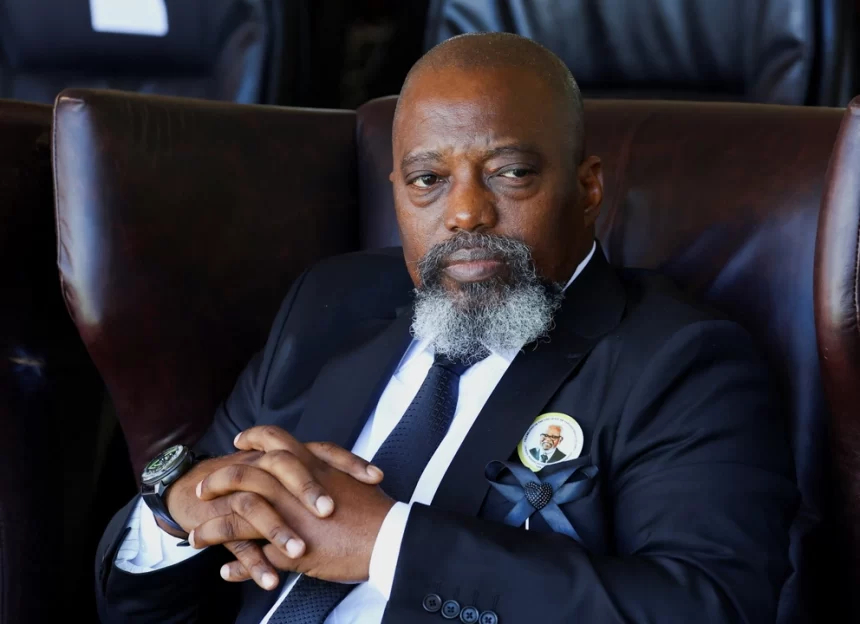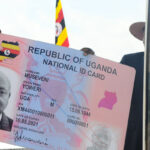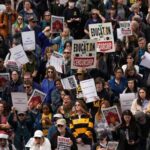Former President Joseph Kabila, after a year of self-imposed exile in South Africa, has announced his imminent return to the Democratic Republic of Congo, stirring political turmoil and igniting debates over his alleged ties to rebel factions amid escalating violence in the eastern regions.
Joseph Kabila, the former leader of the Democratic Republic of Congo (DRC), is ready to end his self-imposed exile and return to his homeland, a decision that is already sparking intense political reactions and raising concerns over stability in the conflict-ridden nation.
Having resided in South Africa since December 2023, Kabila’s announcement marks a significant moment as DRC grapples with a security crisis and increasing violence, particularly in the eastern provinces.
In a candid interview with Jeune Afrique, published on April 8, Kabila stated, “After six years of complete retreat, one year in exile, and in light of the escalating security crisis, I have decided to return to the DRC without delay, in order to play a role in seeking a solution.” The former president plans to make his entry through the eastern regions, where his political career began and where the ongoing conflict with various rebel groups has escalated dramatically.
The government, led by President Félix Tshisekedi, has expressed strong apprehension regarding Kabila’s return. Accusations have emerged claiming that Kabila has been colluding with rebel factions, including the notorious M23 group, which has seized control of major cities such as Goma and Bukavu.
Foreign Minister Thérèse Kayikwamba Wagner dismissed Kabila’s involvement in resolving the crisis, stating emphatically that the government does not need his input or intervention.
Kabila’s return has heightened an already charged political atmosphere. During the last presidential election cycle in 2023, Tshisekedi accused Kabila of orchestrating an insurrection disguised as political opposition, dubbing him the mastermind behind the Alliance Fleuve Congo (AFC)—a coalition of various rebel groups. “Joseph Kabila boycotted the election and is preparing for insurrection,” Tshisekedi proclaimed during a rally, a statement that has only deepened divisions between the former and current leadership.
As Kabila prepares for his return, he remains acutely aware of the precarious nature of his situation. In a statement to Namibian media, he highlighted the urgent need for peace and stability: “I had to put my studies on hold to make time for what’s happening back home.” His decision has sparked debate throughout the DRC, with citizens divided on whether his presence will aid in reconciliation or exacerbate the ongoing conflict.
Kabila’s presidency, which began in 2001 following the assassination of his father, Laurent-Désiré Kabila, was marked by significant political unrest and controversy, culminating in a turbulent transition of power in January 2019. His deteriorating relationship with Tshisekedi, once an ally, has been illustrated by ongoing disagreements over electoral reforms and coalition dynamics.
As Kabila steps back onto Congolese soil, observers are left to ponder the implications of his return. Will he be a unifying force for peace, or a catalyst for further conflict?
The stakes are high, and the eyes of a nation burdened by years of strife are watching closely. Whatever the outcome, Kabila’s return marks a pivotal chapter in the ongoing struggle for stability and peace in the Democratic Republic of Congo.







